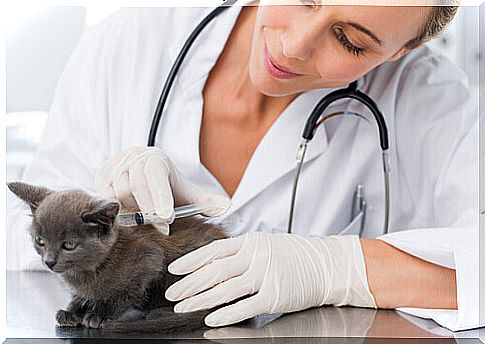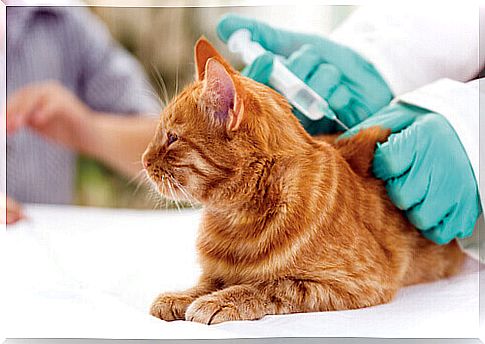Vaccines For Cats

Over the years, research teams have developed several vaccines essential for the correct development of cat health. The work of animal health professionals is absolutely necessary, but it is also important that pet owners are the primary protectors of their pets’ well-being.
For lovers of domestic cats, it is essential to know the vaccination plan to be applied to your pet.
The vaccines for cats are an effective prevention against the development of viruses, preventing the spread of disease and coming on many occasions, to save their lives.
There are deadly diseases that can be prevented with an injection and effective deworming.
What are vaccines for?

Experts say vaccines are essential to ensuring animal health. In cats, the recommended basic immunizations are those that protect against rabies, distemper, feline viral rhinotracheitis, and feline calicivirus.
What about vaccines ? What types of illnesses can they prevent and how often should I apply?
The vaccines will help prepare the cat’s immune system to fight the invasion of these diseases in the body. They are very important for cats’ health.
That’s why it’s essential to keep a vaccination schedule in line with your pet’s history, environment, and specific lifestyle.
Immunization Our Pussy
If you have a cat or if you are thinking about owning one, it is important to know the process to follow to protect your pet from various types of illnesses.
40 days after birth it will be necessary to go to the veterinarian for deworming (worming) the animal.
It is the administration of a special pill that will be very important for the calendar vaccine sequence.
At 9 weeks of life, you will have to apply to your feline the vaccine known as trivalent, which protects the animal against calcivirus, panleukopenia and feline rhinotracheitis. Fifteen days later, the vaccine against feline leukemia, which is the disease that causes the most deaths, will be injected.
One month later, your cat must be revaccinated, both vaccines must be reapplied. It is important to respect the dates or, otherwise, you must go back to the initial process.
the veterinarian, the best ally

A follow-up on the immunization program (ie the vaccines that should be given to your cat and the order in which your cat should receive them) is necessary to ensure our cat’s health and this involves frequent visits to the veterinarian for follow-up.
As the saying goes: “prevention is better than cure”, especially in the case of one of our dearest friends.
On the first visit to the veterinarian, the specialist will perform a check-up, which will consist of taking the cat’s temperature, listening to the heart and examining the ears and mouth.
In addition, the first dose of immunization will be given. From there, he will establish an immunization schedule essential for your pet’s health.
A task for a lifetime
But a cat owner’s work for his pussy’s health doesn’t end there. Treatment will not be complete with just a vaccine.
The commitment to adopt an animal continues with a deworming every 3 months and another vaccine once a year for the life of the animal.
Acquiring a cat means having a house full of “purrs”, affection and company, but these rewards must be accompanied by many responsibilities.
It is necessary to consider whether we will be able to afford the new occupant of the house, considering the care he needs in terms of health and nutrition.
Having a pet is not having a toy, a pet is a living being that requires care and protection.








